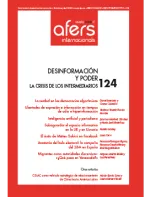Migrants casting themselves as discourse leaders: "What’s happening in Venezuela?"

Political crises caused by authoritarian governments encourage influencers to emerge in the emigrant population. In this regard, this paper addresses transnational communication linked to migration processes. Using a theoretical framework that revolves around the notion of an intermediary – based on classical communication theories – it delves into public opinion, pluralism and disinformation, and examines the reception of the disinformation in terms of moral systems and emotional responses. Specifically, a qualitative analysis is made of material posted on YouTube by two Venezuelan emigrant influencers about Juan Guaidó’s self-proclamation as acting president in January 2019. The focus is on the resources they use to establish themselves as discursive authorities about the political discussion from outside the country.
Keywords: transnational communication, migrations, opinion leaders, disinformation, digital culture, Venezuela, influencers
Authors: Amparo Huertas Bailén, Profesora titular, Departamento de Comunicación Audiovisual y Publicidad, Universitat Autònoma de Barcelona (UAB); directora, Instituto de la Comunicación InCom-UAB. ORCID: http://orcid.org/0000-0002-8851-5417
Luiz Peres-Neto, Investigador, InCom-UAB; profesor colaborador, Escuela Superior de Propaganda y Marketing (ESPM) de Brasil y Universitat Oberta de Catalunya (UOC). ORCID: http://orcid.org/0000-0001-8190-8720
DOI: doi.org/10.24241/rcai.2020.124.1.147
>> The full text articles of this issue are available only in Spanish language
How to cite this article: Huertas Bailén, Amparo y Peres-Neto, Luiz. «Migrantes que se autoproclaman autoridades discursivas: “¿Qué pasa en Venezuela?”». Revista CIDOB d’Afers Internacionals, n.º 124 (abril de 2020), p. 147-169. DOI: doi.org/10.24241/rcai.2020.124.1.147